
In Japan, if you are lonely, you don’t have to be alone.
If you’re lonely, just call the company Nihon Kokasei Honbu and they will provide you with a son, a daughter, a grandchild, etc. — any type of relative you want. And someone will show up and pretend to be your family member.
Of course, you have to be able and willing to pay the hefty free — over $1,000 (plus transportation) for just three hours of your “family member’s” time.1
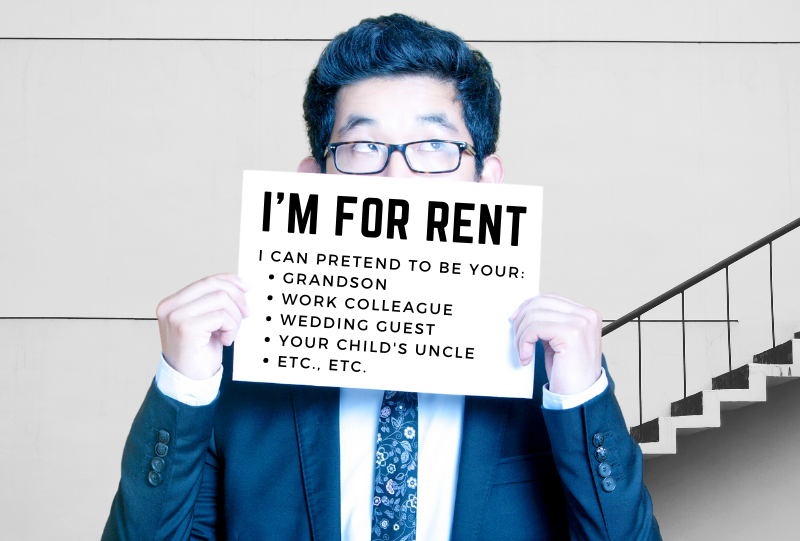
Nihon Kokasei Honbu started this service in the fall of 1991.2 Since then, several other “rent-a-friend/family” agencies have sprung up, offering several variations of the original concept.
If you’ve been laid off from your job, you can rent a “boss” to save face.
If you work contract jobs and don’t stay in a job long enough to make real friends at work, you can rent “workmates.”
If you are a single mother and your child is being bullied in school because they have an absent father, you can rent a “dad” or an “uncle” to attend your child’s events.
If you’re getting married for a second time and are too embarrassed by the failure of your first marriage to invite your existing friends, that’s okay — you can rent friends to attend and even give speeches!

Japanese companies are also developing robots which promise to fill the voids in peoples’ lives and combat loneliness. Some owners of Sony’s Aibo robot dogs are so emotionally invested in their technological pets that they hold funerals when the robots stop working.4
It Is Not Good To Be Alone
The founder of Nihon Kokasei Honbu, Oiwa Satsuki, identified the root cause which made what might seem ridiculous (a family rental service) into a viable business: “What is common about our clients is that they are thirsty for human love.”5
An estimated 6.24 million Japanese over the age of 65 and 18.4 million adults of all ages (twice as many as 30 years ago) live alone. It’s estimated that by 2040, 40% of Japan’s inhabitants will reside in solitary households.6
And yet we know from the creation account, that God has said, “It is not good for … man to be alone.” (Genesis 2:18) The solitude of the man was the first thing in the creation account that God saw that was not good and needed to be corrected.
Modern-day psychological studies have confirmed what we have known from the Scriptures for thousands of years. These studies show that loneliness results in:
- a 29% increase in risk of coronary heart disease and a 32% increase in risk of stroke7
- Alcoholism and drug use8
- Altered brain function9
- Alzheimer’s disease progression10
- Antisocial behavior11
- Decreased memory and learning12
- Depression and suicide13
- Increased stress levels14
- Poor decision-making15
- Diminished sleep quality16
- Impaired immunity17

The city and prefecture of Osaka are not immune to this loneliness epidemic. The cultural history in Osaka is rooted in a “merchant” mentality.18 Business and commerce are dominant themes in Osakan life, with the gross product of the Osaka prefecture being second in Japan only to Tokyo. This cultural characteristic can exacerbate issues of loneliness as residents of Osaka — committed to career and employers — have less time to start and cultivate meaningful friendships.
The average work day in Osaka, as in much of Japan, lasts from 8:30 am until about 7:00 pm (with a one-hour lunch break). However, Japanese workers are typically expected to arrive early and work overtime. And drinks with colleagues after work are often an expected ritual which can increase time devoted to work and work colleagues.19
Add to that already long workday a commute that is becoming increasingly longer. According to a 2015 survey, the average roundtrip commute time for residents of greater Osaka is 1 hour, 26 minutes.20 But others report that commuting two hours one-way to work has become the norm as residents of Osaka move to the suburbs and countryside for better living conditions.
Increasingly during the day, the suburbs surrounding Osaka are becoming vacant as residents travel long hours in the morning to reach their place of work/business in the city, spend the day in the city, and then repeat their long commute to return home in the evening.21
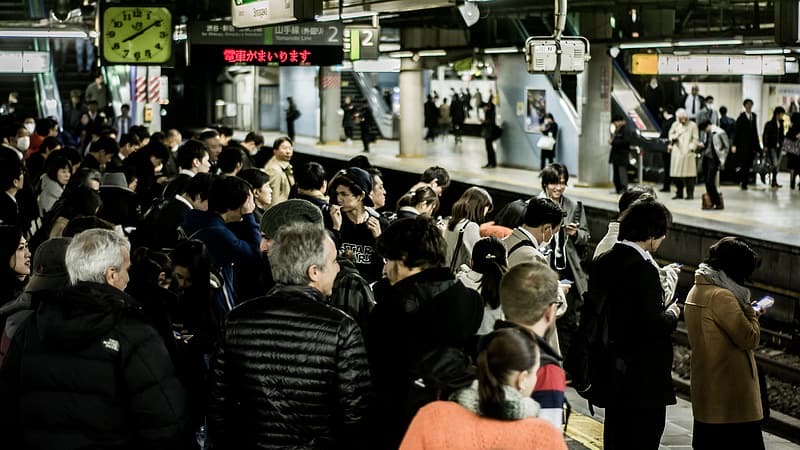
Longing For Their Creator’s Love
Building and cultivating meaningful friendships in these circumstances is exceedingly difficult. But God has a solution. He has a cure for the epidemic. He is “a father to the fatherless, a defender of widows,” and He “sets the lonely in families.” He causes the lonely to dwell in households. (Psalm 68:5-6)
Oiwa Satsuki believes that the Japanese people are thirsty for human love. In reality, they are longing for the love of their Creator.
But how will they learn of their Creator and of His love for them? Steeped in Buddhism and the rituals of polytheistic Shintoism22, the Japanese are the second least-reached people group in the world. Some Japanese have never even heard of Jesus.
How Will They Hear?
God is sending a gregarious, church-planting family, who are:
- filled with joy,
- experienced in reaching a downcast culture,
- committed to evangelism and discipleship, and
- ready to patiently build friendships with unbelievers
to plant a community in Osaka that will become a family where God will place the lonely.
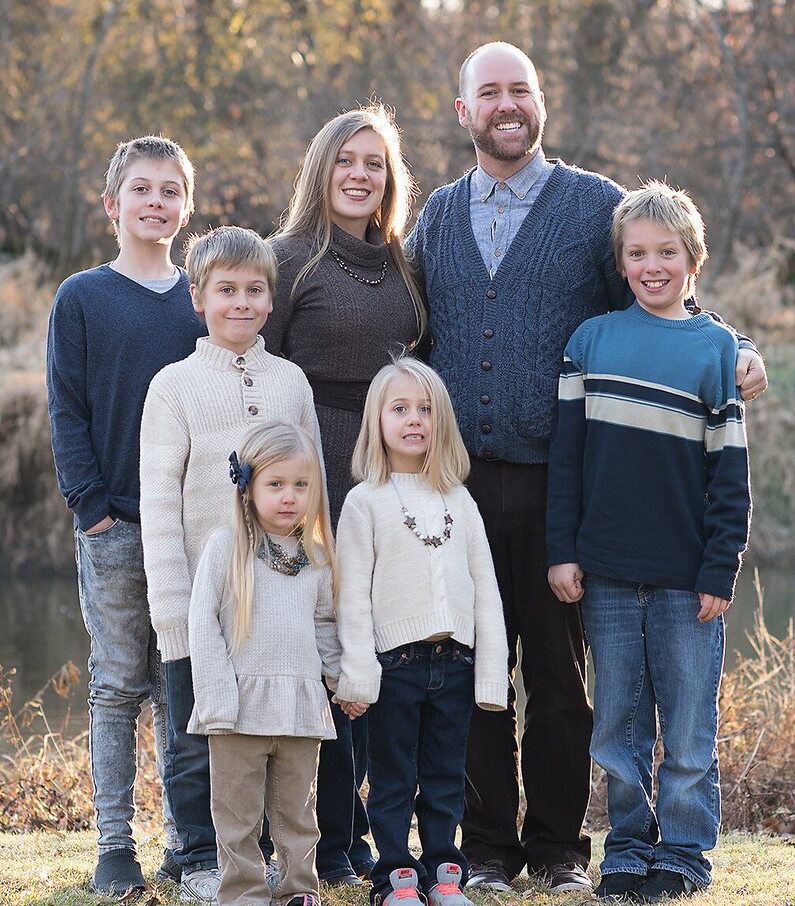
Patrick and Kalyna Stitt, along with their five children — Jack (13), Finnian (12), Levi (10), Aletheia (6), and Keela (4) — are newly-appointed Assemblies of God missionaries to Osaka, Japan. They are currently raising prayer and financial support in preparation for their move to Japan.
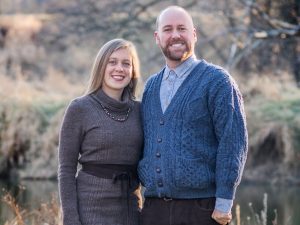
Kalyna grew up in a Christian home where missions was a massive emphasis. When she was young, she felt called to be a missionary. Her father gave her the book Bruchko*, the story of 19-year-old American Bruce Olson and his missionary adventures among the stone-age Motilone Indians of Colombia. Her mother thought that the book would discourage Kalyna, but it only made her more passionate about missions.
Patrick did not have an earth-shattering call to involvement in missions — he simply was deeply impacted by God’s love and had a strong passion to tell people about Jesus from the beginning of his life as a Christian.
Patrick and Kalyna met at a missions college in 2004 and together have been dedicated to spreading the gospel around the world since they first met. They began their ministry together working with youth and children in a local church, but in 2010, they moved (with Jack, Finnian, and Levi) to Chisinau, Moldova to serve as missionary associates and work with women who had been victims of human trafficking.
Uniquely Prepared for a Larger Sphere of Influence
Working with women and girls who were physically damaged, emotionally broken, and socially ostracized was challenging.
In addition, the people of Moldova were miserable. In fact, in 2009, best-selling author Eric Weiner called Moldova the unhappiest place on earth in his book The Geography of Bliss: One Grump’s Search for the Happiest Places in the World.23 More recently and from a bit more scientific perspective, the 2020 World Happiness Report, published by the Sustainable Development Solutions Network (a global initiatve for the United Nations), ranked Moldova 70th out of 156 countries in terms of the happiness of its residents.24
Patrick reports that at first, he started to become depressed because of the overall dark societal mood. It required a conscious choice on his part to be happy, to go outside, and to smile at people. Because of the joy Patrick and Kalyna displayed, they found that people would come and talk to them because they were different. This opened the door to many new relationships.

Their ministry in Moldova was both successful and satisfying, so at the end of their initial two-year term, they were surprised when God called them to return to the United States and pastor a church.
But God was preparing Patrick and Kalyna and their family for a larger sphere of influence. In addition to their experience working among a people group which tended to be downcast, the pastoral experience they would gain in the United States would be pivotal in the ministry to which God would call them.
Upon their return to the States, they were quickly asked to become lead pastors of Vibrant Life Assembly of God in Ellendale, Minnesota. They had never been lead pastors before.
During the eight years they pastored Vibrant Life Assembly, Patrick and Kalyna learned to discern the spiritual needs of the people in the church, disciple them, and lead the church in such a way that people would have experiences with God as part of the believing community.
Although they loved pastoring the church in Ellendale, they also knew that eventually God would call them back into missions.
When they began to sense that God was stirring their hearts again for missions, they had more than one opportunity — Holland was a possibility. They were also offered a pastoral position in Paris. But none of these opportunities resonated with them.
Then a missions-minded friend asked them if they had thought about going somewhere where the work was not as well-established. After that conversation, they began asking themselves where the least reached people groups in the world were located.
They discovered that the second least reached people group in the world are the Japanese. And they realized that among the 20 least reached people groups, the Japanese are the only people group where Christianity is in decline. The more they prayed about it, the more they felt that God was leading them to Japan.
Once they sensed God’s call to Japan, Patrick and Kalyna were asked to plant a church in the city and prefecture of Osaka.
With
- Patrick’s dedication to pastoring, evangelism, and leadership training;
- Kalyna’s passion for both Biblical discipleship and teaching English (as she pursues a TESOL degree);
- their experience working together in the largely depressed society of Moldova; and,
- their years leading a local church,
God has prepared them to establish a city-impacting church that will grow and plant other churches in surrounding areas. They are confident that God will do more than they can imagine and that Japan is on the precipice of a move of God that will revolutionize the nation.
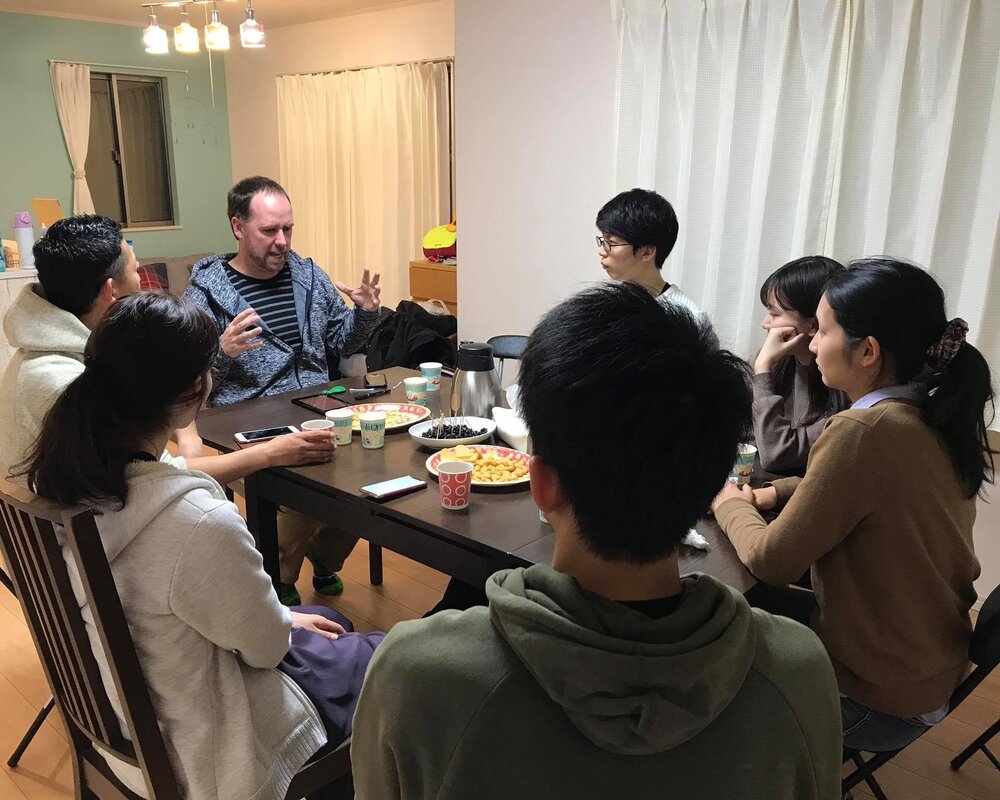
How to Join the Stitts in Reaching Osaka for Jesus
If you’ve read our pillar articles (which can be reached through the tabs at the top of the site if you are using a desktop or the three-bar/”hamburger” menu if you are using a mobile device), you know that our conviction is that all believers should be part of a team seeking to reach the unreached. Some will go, some will pray, some will provide financial support, some will provide logistical support — but all are called to give their lives to reach the nations.
Here are four ways you can be a part of Patrick and Kalyna’s team:
- You can pray for Patrick and Kalyna and their family on an ongoing basis. The best way to stay informed of their prayer needs is by subscribing to their newsletter (visit https://agmd.org/u/StittFamily and click on the Newsletter Signup button) or following them on Facebook.
- You can support Patrick and Kalyna financially by signing up to support them on a monthly basis or to contribute a one-time gift at their online giving page.
- You can consider physically joining Patrick and Kalyna to aid the work in Osaka. Contact them through their website for more information.
- If you are a pastor or missions leader in your church, we would encourage you to get in touch with Patrick and Kalyna to see how they might be able to encourage your people for the cause of missions in Japan and also to find out how you can be of service to them.
COUNTRIES IN THIS ARTICLE: Japan, Colombia, Moldova
WORKERS IN THIS ARTICLE: Patrick and Kalyna Stitt
1 David O. Dykes, “Church: Where God Sets the Lonely in a Family,” accessed October 18, 2020, https://www.preaching.com/sermons/church-where-god-sets-the-lonely-in-a-family/.
2 Wikipedia, “Rental family service,” accessed October 18, 2020, https://en.wikipedia.org/wiki/Rental_family_service.
3 Justin McCurry, “Lonely Japanese find solace in ‘rent a friend’ agencies,” accessed October 18, 2020, https://www.theguardian.com/world/2009/sep/20/japan-relatives-professional-stand-ins.
4 Marc Prosser, “Searching For A Cure For Japan’s Loneliness Epidemic,” accessed October 18, 2020, https://www.huffpost.com/entry/japan-loneliness-aging-robots-technology_n_5b72873ae4b0530743cd04aa.
5 Dykes, ibid.
6 Prosser, Ibid.
7 U.S. Health Resources & Services Administration, The “Loneliness Epidemic,” accessed October 24, 2020, https://www.hrsa.gov/enews/past-issues/2019/january-17/loneliness-epidemic.
8 Kendra Cherry, “The Health Consequences of Loneliness,” accessed October 24, 2020, https://www.verywellmind.com/loneliness-causes-effects-and-treatments-2795749.
9 Ibid.
10 Ibid.
11 Ibid.
12 Ibid.
13 Ibid.
14 Ibid.
15 Ibid.
16 Amy Novotney, “The risks of social isolation,” accessed October 24, 2020, https://www.apa.org/monitor/2019/05/ce-corner-isolation.
17 Ibid.
18 Don Wright, ed., Operation Japan (Operation Japan Publishing Company, 2019), 59.
19 Lia Ryerson, “What an average work day looks like in 18 countries around the world,” accessed October 18, 2020, https://www.insider.com/office-work-day-around-the-world-2018-5.
20 RealEstateJapan, “What Is the Average Work Commute Time in Japan?”, accessed October 18, 2020, https://resources.realestate.co.jp/living/average-work-commute-time-japan/.
21 Ron Sisco, “Japan: Trends and Issues”, accessed October 18, 2020, https://www.asianaccess.org/engage/pray/by-country/72-japan-prayer/542-japan-trends-and-issues.
22Jason Mandryk, ed. Operation World, 7th Edition (Downers Grove: InterVarsity Press, 2010), location 25787.
23 Louis O’Neill, “The World’s Most Unhappy People,” accessed Ocot https://www.wsj.com/articles/SB124025997653636315.
24 Sustainable Development Solutions Network, “2020 World Happiness Report,” accessed October 25, 2020, https://happiness-report.s3.amazonaws.com/2020/WHR20.pdf.


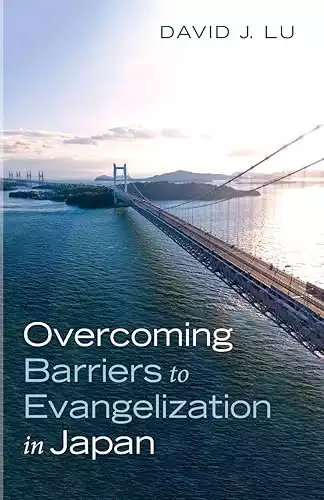

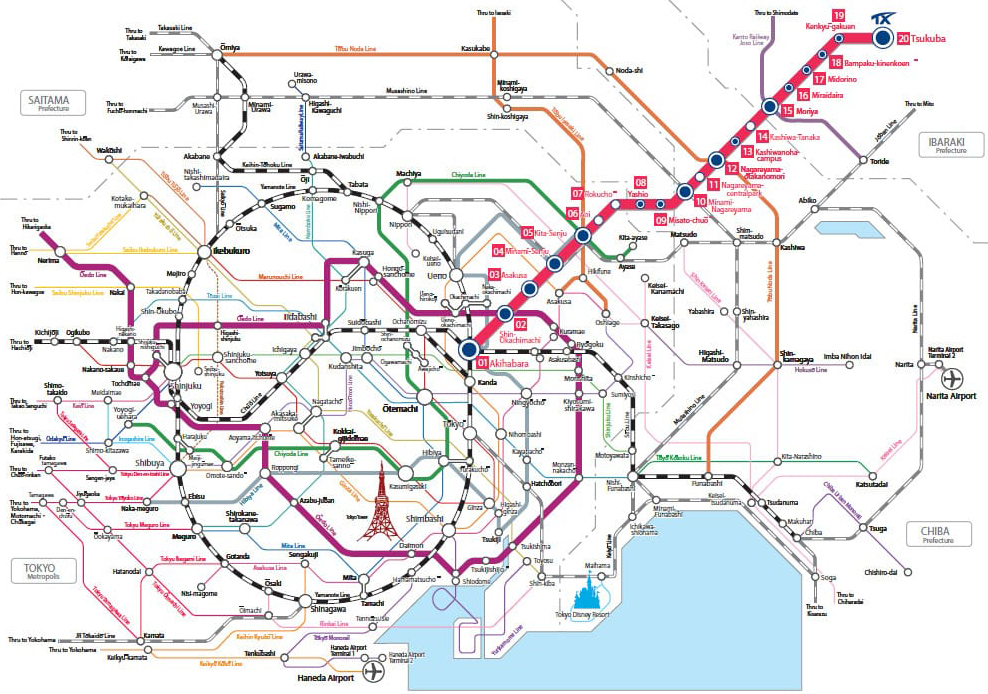
Leave a Reply